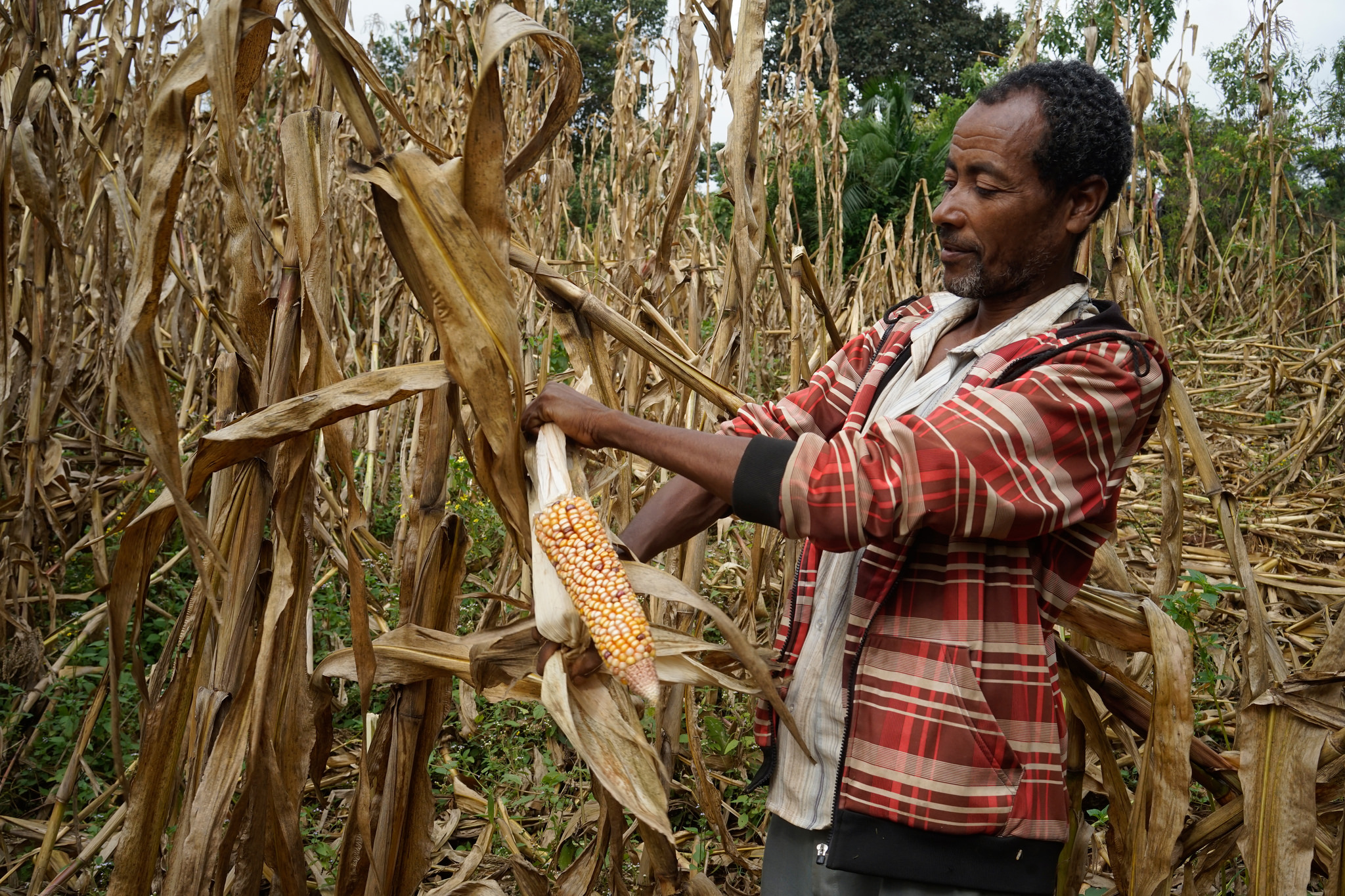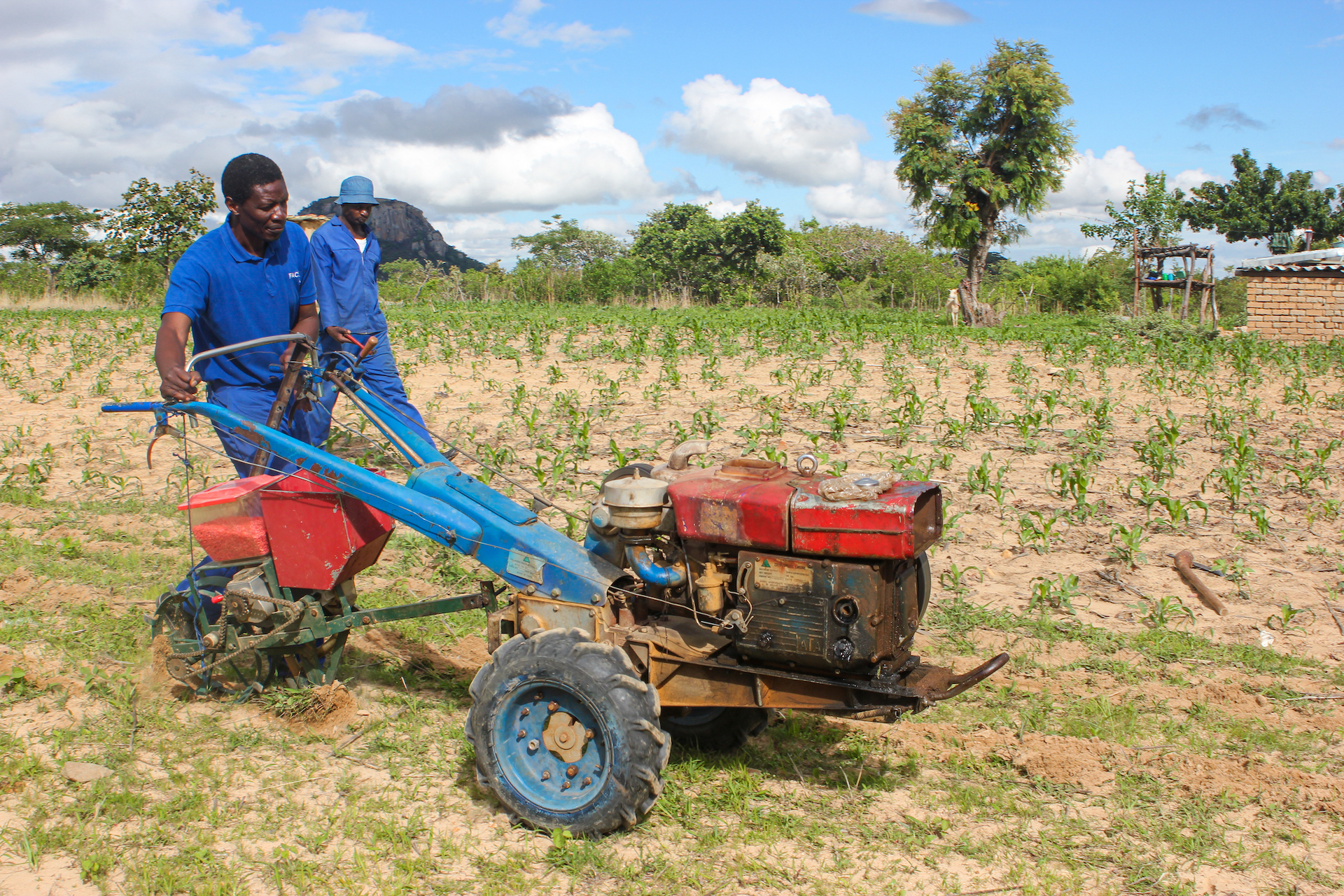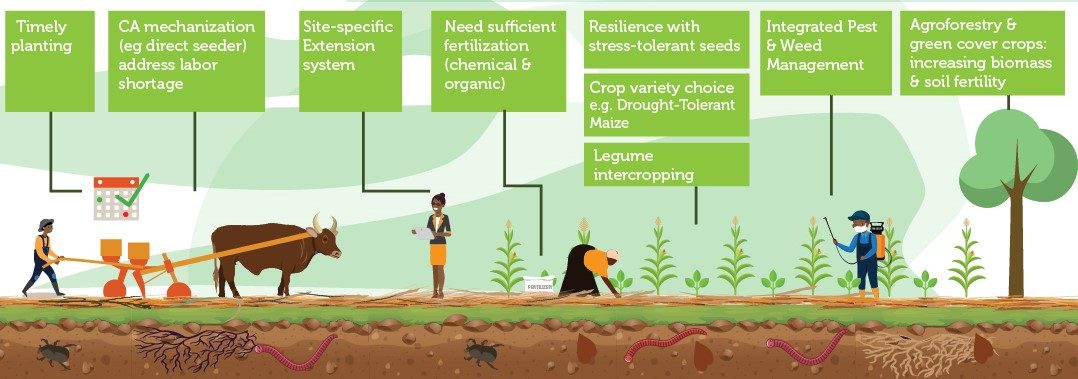Post-harvest losses — which can range between 10-20% in major cereals — cause not only the loss of economic value of the food produced, but also the waste of scarce resources such as labor, land, and water, as well as non-renewable resources such as fertilizer and energy.
“High postharvest losses imply reduced grain yield, but with the same total greenhouse gas emission,” says Rabé Yahaya, a CIM/GIZ Integrated Expert working at the International Maize and Wheat Improvement Center (CIMMYT). “Reducing these losses reduces the yield-scaled global warming potential — total greenhouse gas emission per kilogram of grain — and contributes to climate change mitigation, as well as food security.”
A significant proportion of these losses are caused by late harvest due to labor shortages, with crops languishing in the field before farmers can retrieve them. Small and medium-sized machinery may seem like the answer, but many one or two-axe machines are often unable to reach the inner sections of rice and wheat fields because of limited road access, or the fact that they are simply too heavy to carry.
“As mechanized land preparation works outwards, inner fields get ready for harvest first, but without any applicated technical solution,” he explains.
Could motorized scythes be the answer? Yahaya thinks so.
The other scythe
Motorized scythes are hand-operated tools used for mowing grass or reaping crops. Though largely replaced by horse-drawn and tractor-mounted implements, they are still commonly used in some areas of Asia and Europe.
Models specifically adapted for harvesting rice and wheat have been commercially available in Africa for over two decades and currently sell for $150-350, presenting the lowest initial investment cost of all engine-driven solutions on the market. The motor scythe also boasts the lowest harvest cost per hectare and is portable enough to reach inner fields.
Despite its relative affordability, uptake in much of West Africa has been slow, as many farmers have found the 10kg machinery too heavy for sustained use.
“Studies carried out in Benin, Burkina Faso, Cote d’Ivoire and Mali show that this rapid fatigue is caused by incorrect handling of the machinery, including flawed posture,” Yahaya explains. “This is simply because most operators have never undertaken official training for operating the tool.”
In a bid to address this challenge, Yahaya has been collaborating with Elliott Dossou, Sali Atanga Ndindeng and Ernst Zippel — all scientists at AfricaRice — to design and test potential solutions. Their proposal for the development of a Service Provider Harvest (SPH) model has been shortlisted for the GIZ Innovation Fund 2020 award, from a GIZ/BMZ-supported Innovation Fund.
Cut for service
The approach focuses heavily on capacity development, with an initial nucleus group of trainers taking the lead on activities such as recruiting and contracting service providers, providing training on harvesting and threshing, supporting aftersales services such as machine maintenance and repair, and helping to determine the optimum harvest time.
Under the proposed model, each trainer will be responsible for a group of around 50 service providers, who will receive guidance on understanding their role, finance, creating a network of client farmers, machine maintenance and use.
In addition to the financial rewards and aftersales services, the training opportunities will make this technology accessible to young entrepreneurs in rural areas. Earning up to $18 a day for harvesting and weeding services, those using the tool can expect to see a return on their initial investment in one to two months.
“Young people are the main prospective clients for this initiative,” says Yahaya. “With the motor scythe and related training, they can start earning serious money.” He stresses, however, that all farmers – regardless of age or gender – will be able to benefit from the job creation opportunities this initiative provides.
The initiative has been shortlisted for the GIZ Innovation Fund 2020. If selected, funding from the accelerator program would support testing, the integration of GPS sensors into the tools, creation of a platform for bank security and Carbon Credit earning, other technical activities.

 Innovations
Innovations 


